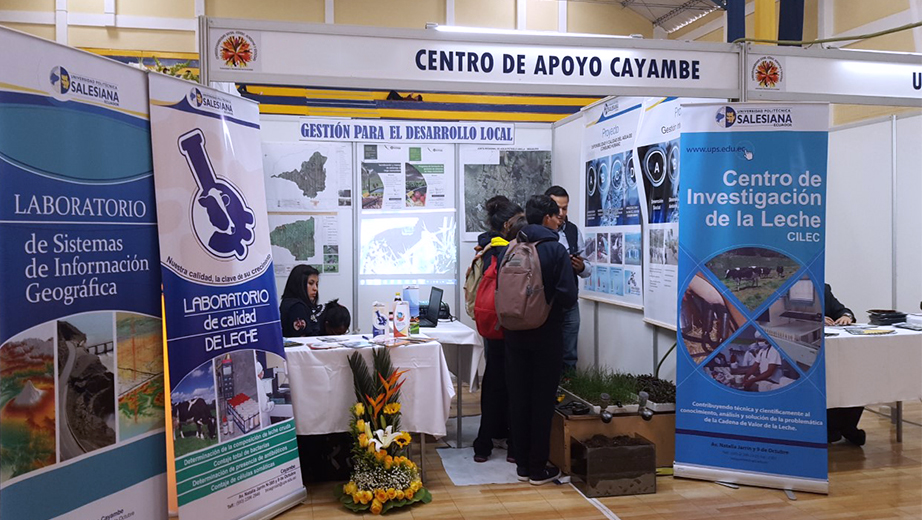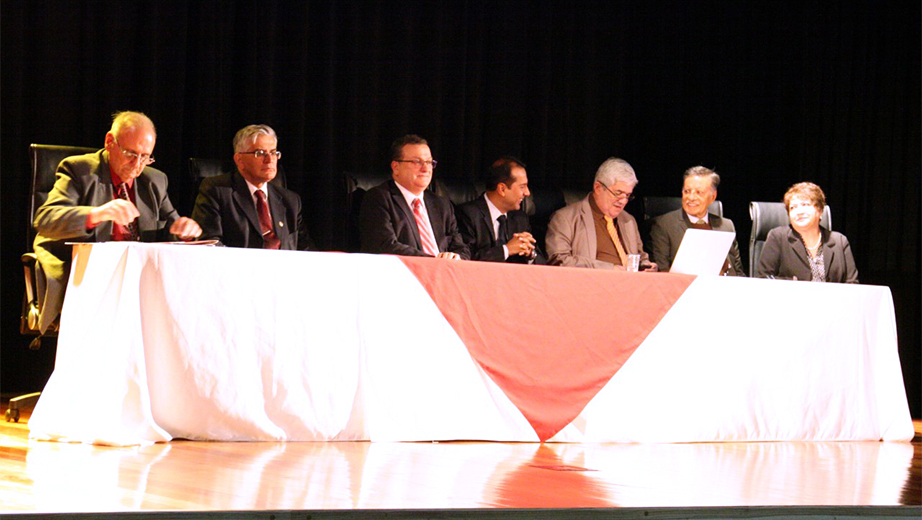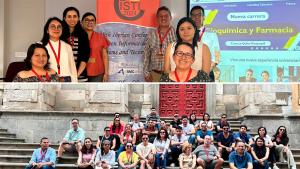Representatives from the state, academia and society spoke about community involvement in the university
Representatives from the state, academia and society spoke about community involvement in the university

On November 29th and 30th, in the university's branch in Quito, representatives from Ecuadorian universities, state entities, students and professors attended a meeting titled "Social co-responsibility: the state, academia and society". The aim of the event was to discuss experiences on social responsibility in higher education with society.
The opening ceremony of this event was attended by Enrique Santos, president of the higher education council (CES for its acronym in Spanish), Luis Tobar, general academic vice president of UPS; Jose Juncosa, vice president of the university's branch in Quito; Lola Vazquez, director of the community involvement department: Alberto Celi, vice president of research at Escuela Politecnica Nacional; Homelio Boroto, coordinator of community involvement of Ecuadorian universities and Cesar Hermida.
Jose Juncosa gave the welcome speech and suggested sharing learning experiences regarding topics of co-responsibility from each university. Luis Tobar spoke about the Ecuadorian university and how it should take on community involvement as a social and academic responsibility. "UPS understands involvement as diverse relationships of the university with other social components in a scientific, cultural and service manner, through planning, evaluating and teaching in order to have a democratic, intercultural and solidary society", he said.
In his conference, Enrique Santos said that "community involvement is a transversal function of teaching and research, where sciences come together to generate knowledge whose aim is to promote changes in society. "Involvement is a complex task that has not specific meaning. The state and academia should follow a research methodology to contribute to the development of the most vulnerable sectors."
Hermida said that in order to be involved in society, research is indispensable as a relevant element of action and that methodological lines should be related to our economic, cultural and social context. Once the inauguration was over attendees several conferences with national and international speakers who talked about social responsibility, science, technology, university actions, suggestions for university models of involvement, and others.
Concurrently, there was an exhibition of projects from several universities such as Universidad Central del Ecuador (UCE); Pontificia Universidad Católica del Ecuador (PUCE); Escuela Politécnica Nacional (EPN); Universidad de las Américas (UDLA); Universidad Tecnológica Equinoccial (UTE); Universidad de las Fuerzas Armadas (ESPE); Universidad Tecnológica Indoamérica; Universidad Estatal Amazónica; Universidad Nacional de Chimborazo; Universidad Técnica de Machala and social institutions like: Proyecto Salesiano Chicos de la Calle; Fundación Niñez Internacional; and Ministerio de Educación MUYUKAWSAY.
UPS presented the following projects: Radio Mensaje de Cayambe, library for the blind, research from the GRICAM research group and the language institute







Follow us
Follow us